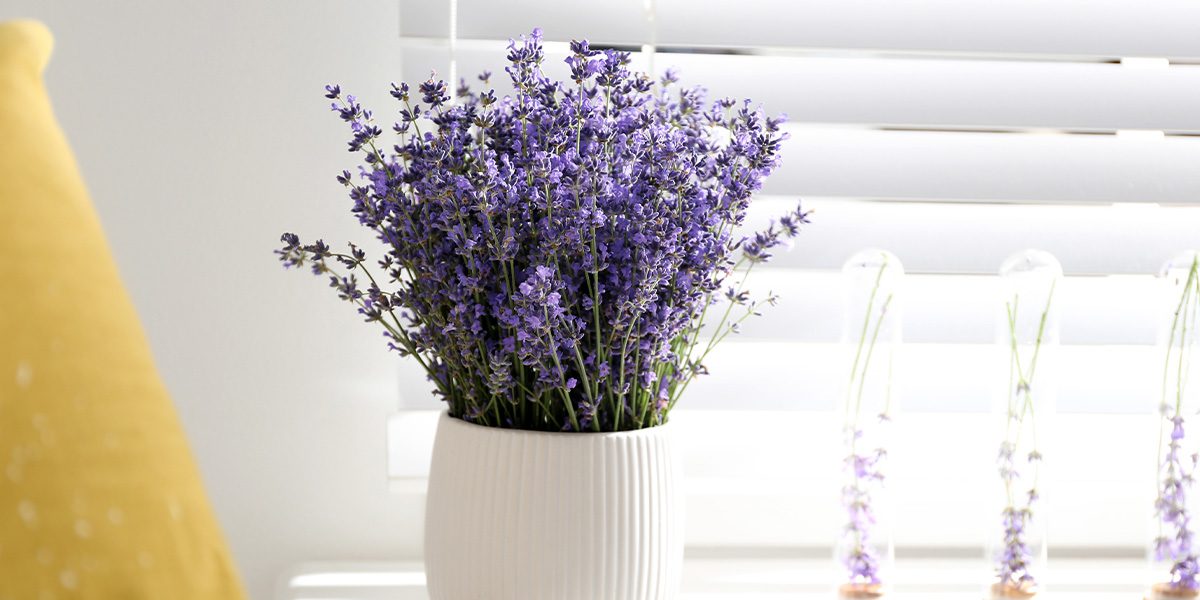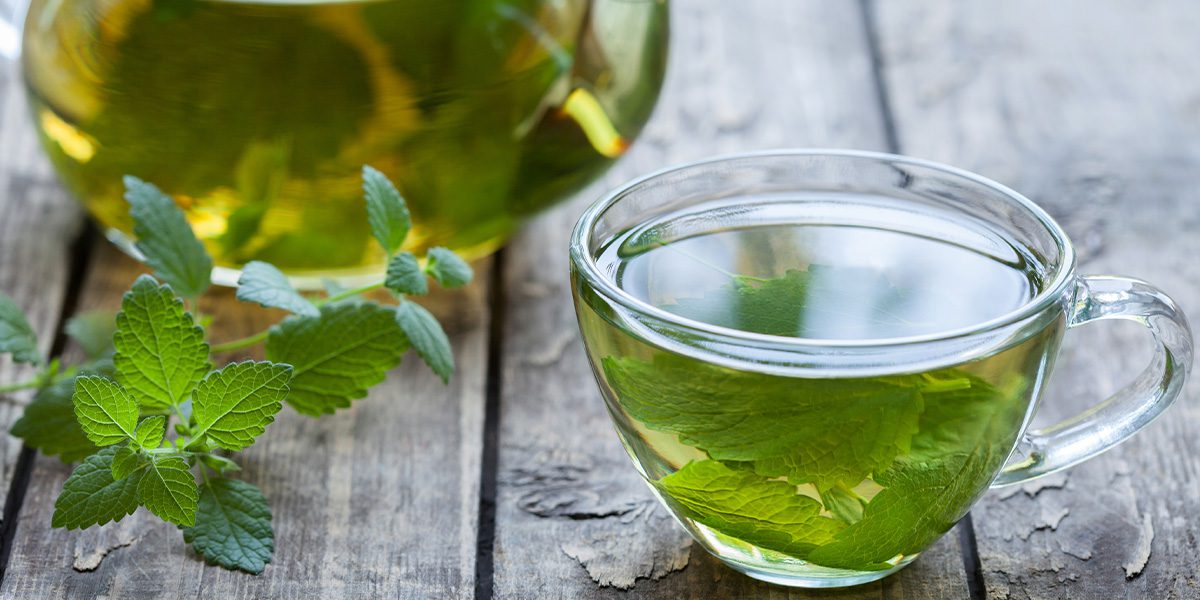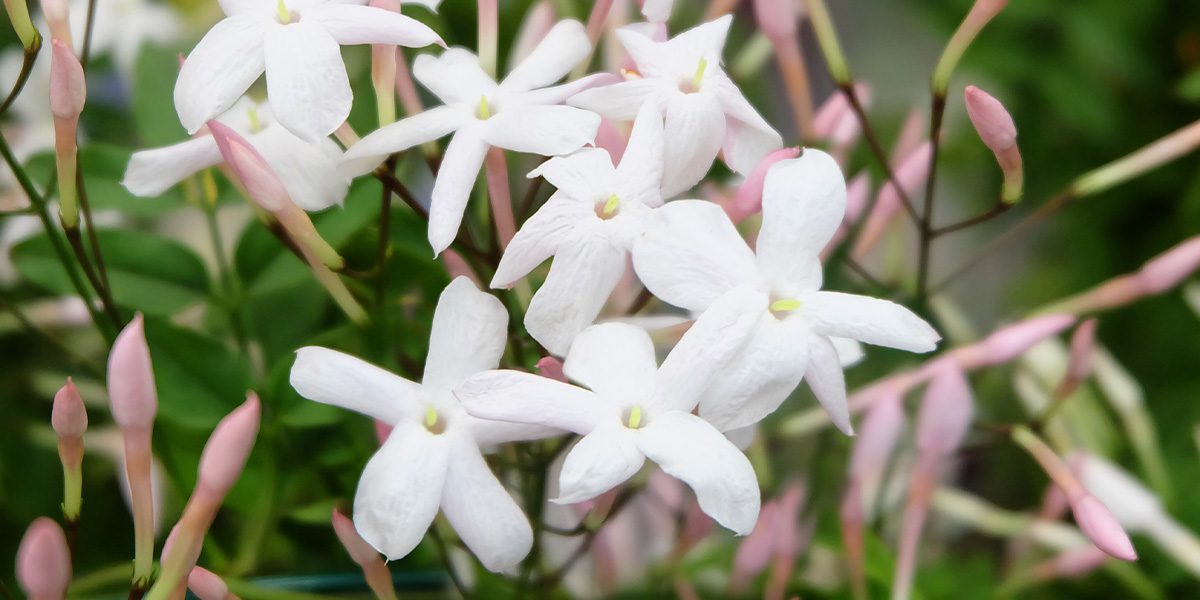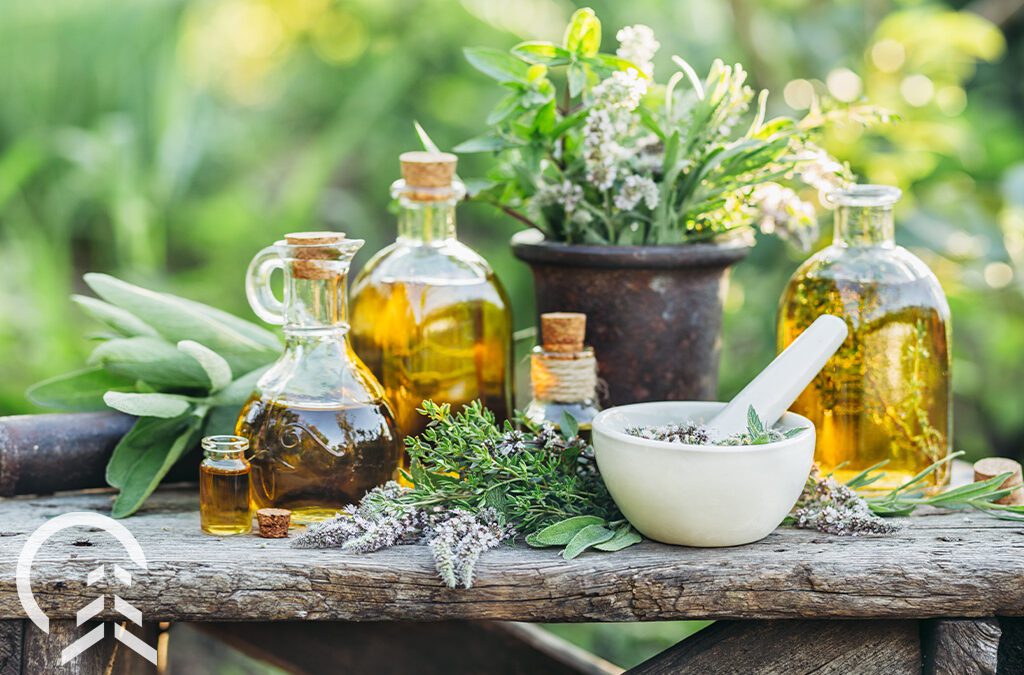Cinnamon, bergamot, jasmine, chamomile: sometimes, just the mere thought of these fragrant aromas has a healing effect. However, it’s even better to actually breathe them in, letting their divine scent wash away your worries through what holistic practitioners call aromatherapy. Though aromatherapy usually involves distilled essential oils, you can grow some of these common therapeutic plants in your own home and enjoy their healing properties daily!
What is Aromatherapy?
Aromatherapy uses scents to reduce stress, change our emotions, and foster relaxation. At a scientific level, the scents travel through the olfactory nerve into the amygdala, the emotional part of the brain, where they shift our emotions. In a personal way, we’ve all had these experiences, like when we wake up to the cozy scent of cinnamon oatmeal, or catch a sudden wave of refreshing lilac blossoms in the spring. These moments can easily carry us away and lift whatever burdens previously weighed on our minds. Aromatherapy distills these moments and allows us to enjoy them on demand, whether by inhaling essential oils in a bath or during a massage, or by imbibing upon the perfumes of herbs and houseplants.
What are the Best Houseplants and Herbs for Aromatherapy?
Chamomile
While chamomile is best known for its relaxing tea, its scent also does wonders for calming the nerves. We recommend growing this houseplant from seed as part of your indoor herb garden. This way, in addition to its aromatherapy, your chamomile will also reward you with an explosion of yellow and white, daisy-like flowers.

Lavender
Your nose is probably no stranger to this soothing Mediterranean herb. Although it’s most commonly grown outside, you can also grow it indoors as a houseplant. It’s best to give it as much sunlight as possible and rotate it every 3-4 weeks to encourage even growth. Don’t expect much—if any—growth during the winter, but its fragrant leaves stay on its wood year-round.
Need tips on how to start growing your own container herb garden? Watch this video by Chicago Gardener.
Rosemary
Growing rosemary indoors is similar to growing lavender. It goes dormant during the winter months but retains its leaves year-round. Although you’ve probably enjoyed this popular plant in cooking, it also makes for a very relaxing cup of tea, fragrant potpourri, and scented companion to enjoy around the house.
We have a yummy and savory recipe for Rosemary Parmesan Pumpkin Seeds. Check it out!
Here are quick tips on how to take care of your potted rosemary.
Photo Credit: nancyherbsandwellness

Lemon Balm
Lemon balm has been used since the Middle Ages to reduce anxiety, improve sleep, and promote good digestion. It will thrive as part of your indoor herb garden so long as it gets enough light, preferably at least 5 hours per day. As part of the mint plant family, lemon balm provides beautiful scents wherever it’s used. Our favorite uses for lemon balm are in teas or as a garnish in salads or other cooking.
Peppermint
Common in toothpaste and mouthwashes, peppermint may not elicit the same wave of feelings as, say, lilac. However, it is nevertheless a powerful, soothing herb. A natural inhabitant of shade, it can tolerate less light indoors and prefers moist conditions. Remember to thin out the peppermint as it grows, so you have fewer leggy plants and more leaves.
It can be tricky to keep your herbs strong, flavorful, and healthy, but here are some tips to help your kitchen herbs thrive throughout the winter and the entire year.

Jasmine
Jasmine rivals any of the most inspiring scents in the plant world. While a few varieties are hardy to our cold Illinois climate, most jasmines are beyond their range up here in Illinois. Fortunately, we can enjoy this fragrant flower indoors as a houseplant. With proper care, Jasmine flowers will start to bloom in spring and give you eight weeks to enjoy the mesmerizing scent. During the rest of the year, the leaves will retain a less powerful but soothing perfume.
Citrus Plants
Did you know that you can grow lime and lemon trees in Chicago? At least, you can indoors. When grown indoors, these trees will remain a manageable size and may even bear fruit after several years of growth. Even if they don’t, they still make beautiful houseplants, and the leaves will provide a relaxing fragrance. Plus, lime leaves can be steeped to impart flavor to cooking, just like you would with a bay leaf.
Our sense of smell is very much attached to our emotions. Growing scented plants in our homes is a great way to take advantage of their natural aromatherapy. To see our full selection of plants, please visit our nurseries and garden centers in Bloomingdale and Carpentersville.


